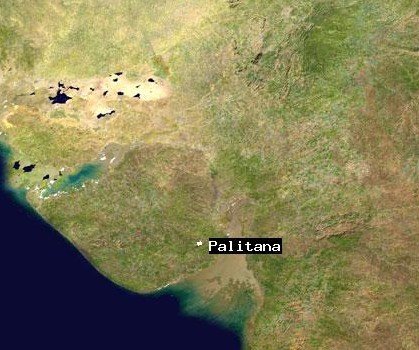
Hyderabad: In a historic move, Palitana, a serene city in Gujarat’s Bhavnagar district, has become the world’s first city to completely ban non-vegetarian food, including the sale, consumption, and slaughter of meat and eggs. This landmark decision, enacted in August 2014, reflects the city’s deep-rooted Jain heritage and its commitment to the principle of ahimsa (non-violence), a core tenet of Jainism. Palitana, often called the “Jain Temple Town,” is home to over 800 intricately carved temples on the sacred Shatrunjaya Hills, making it a significant pilgrimage site for Jains worldwide.
The ban was spurred by persistent protests from Jain monks, culminating in a 2014 hunger strike by nearly 200 monks demanding the closure of approximately 250 butcher shops. Respecting the Jain community’s sentiments, the Gujarat government implemented the prohibition, criminalizing meat-related activities with legal penalties. The decision aligns with Palitana’s cultural and religious identity, where even root vegetables are avoided to prevent harm to microorganisms, reflecting Jainism’s extreme reverence for all life forms.

Since the ban, Palitana’s culinary landscape has transformed, with a surge in vegetarian restaurants offering dishes like Dhokla, Khandvi, and Khichdi, attracting pilgrims and eco-conscious tourists. However, the move has sparked debate. Critics argue it infringes on personal dietary freedoms and may deter non-vegetarian tourists, potentially impacting the local economy, which heavily relies on pilgrimage tourism. Others praise the ban for promoting ethical eating and environmental sustainability.
Palitana’s bold step has inspired similar regulations in other Gujarati cities like Rajkot and Vadodara, signaling a broader cultural shift. As the world watches, Palitana stands as a unique symbol of non-violence, reshaping its identity as a vegetarian haven while navigating the complexities of tradition and modern dietary diversity.

